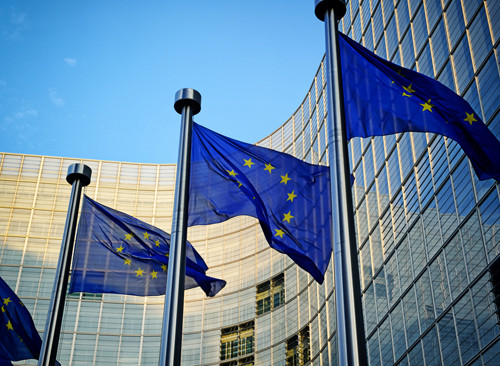Imagine you arrive at work one morning and someone tells you that a new law has been introduced that means every bit of consumer data used for direct contact with customers and prospects can no longer be used. Well it is going to happen to a lot of brand owners before the end of 2017.
This is because a huge number of companies are sleep walking towards the time when General Data Protection Regulation (GDPR), the forthcoming EU data law, will come into effect.
For most brands, being prepared will involve making considerable changes, and there is a proposed fine of up to 100 million Euros for those that do not make them. Plus there could also be the possibility that consumers will be given the right to claim damages for misuse of data that may replicate the situation of PPI.
Compliance is the key factor in all of this. The biggest challenges are meeting the new opt in consent criteria for sending direct communication, plus the storage of individual consent forms of each consumer.
At present consent can cover a multitude of channels covering different products, brands and companies as long as they are all directly linked to the source that was granted permission in the first place. Under GDPR consent can only be based on particular channels and particular subjects. Think of it like moving between sets of traffic lights at which fresh permission is required to move a consumer to new subjects.
All direct marketing files will have to be audited to establish whether they meet the new compliance standard, and in the likelihood that they do not, they will have to be refreshed by contacting consumers. This will be accompanied by having to store newly completed consent forms, whether electronically or paper based.
For those that work outside direct marketing it may seem like a case of sitting back and observing the potential nightmare unfolding. But it may not be so simple. If you are involved in any form of consumer contact, or profiling there is probably a need to at least understand the new law.
There are rules within GDPR that may have less impact than on direct marketers, but they are to be followed just the same. For example, identifying individuals through pseudonymous data, and collecting or sending information relating to any form of promotion requires an understanding of compliance. All marketers should be aware of how the new regulations will potentially influence what they do.
Having to audit and refresh data to be able to meet the new compliance standards is unquestionably an unwanted nuisance, but there can be an upside. If it is necessary to contact customers and prospects to obtain the correct opt in consent it should be used to find out much more about them, what their real buying potential is, their buying triggers and how best to sell to them. It is even possible to sell direct while undertaking this processes.
In recent years telemarketing has had a poor reputation, but at the top end of the practice it has no rivals in being able to illicit information from consumers, and it should be a consideration for refreshing opt in permission.
At its most sophisticated, telemarketing uses well trained operators that work to multi layered scripting. They are able to accurately interview consumers to identify buying triggers, and move across scripts based on responses while appearing to conduct a non-interrogative dialogue. They can gain valuable information on the value and potential of individuals, record verbal opt in permission, and make any one of a range of different offers based on the information they extract.
Telemarketing can create a situation in which the opt in processes is accomplished, gain valuable new data, and it can be pay for itself in full or in part. The fresh data captured should increase revenue for years to come.
But telemarketing is also the best chance of gaining the required enhanced permission. Even the most persuasive copy used in a letter, email or text cannot match an even a moderately good tele operator working to good scripting. Direct human interaction always outperforms other communications channels.
Of course, there is a temptation to ignore GDPR, or cut corners. But sooner or later there will be a compliance check. The Information Commissioners Office (ICO), which is responsible for enforcing data rules, has become increasingly diligent in recent years, and if the new law incorporates the right of individuals to make claims for misuse of data it is certain they will. Additionally, there is the potential damage to brand equity.
Tackling GDPR head on now, and addressing it positively is something all brand guardians need to consider. The alternative of leaving it to the last minute, or adopting half measures will cost much more in the long term.






